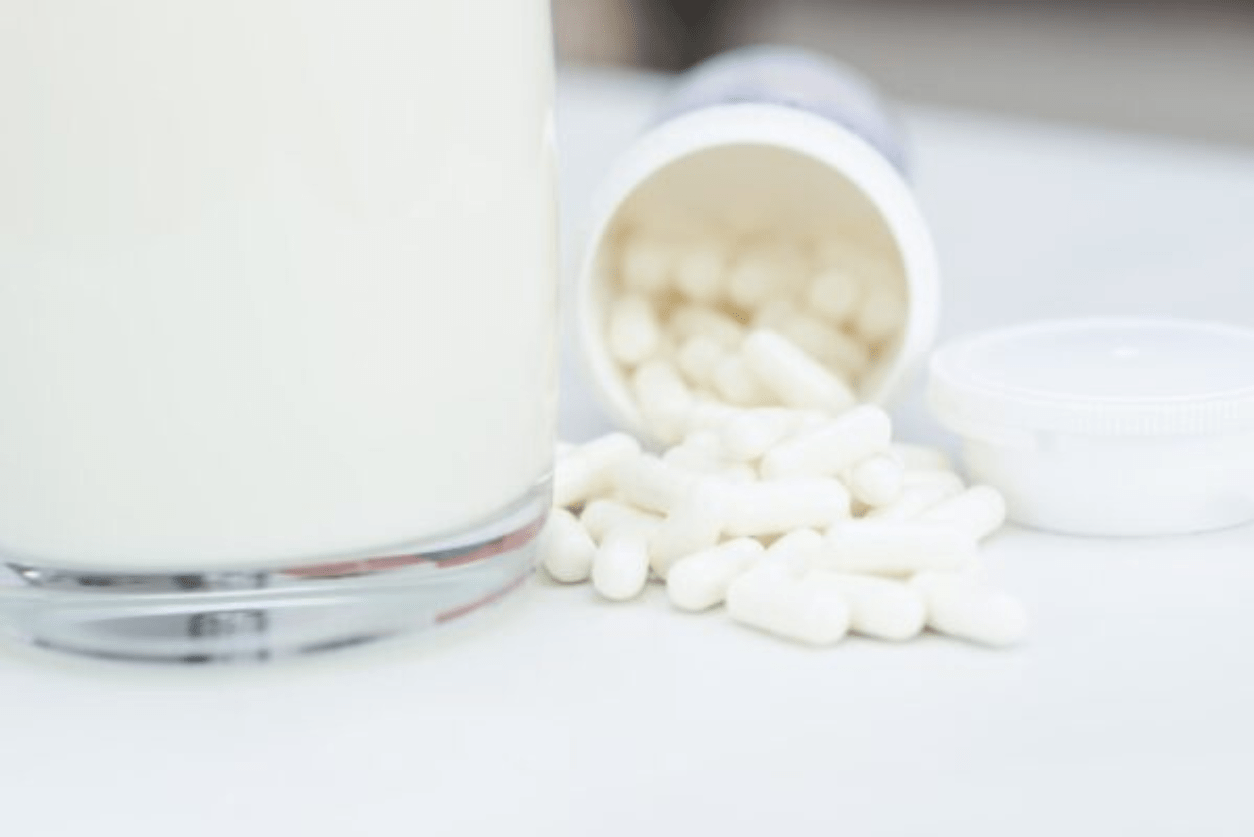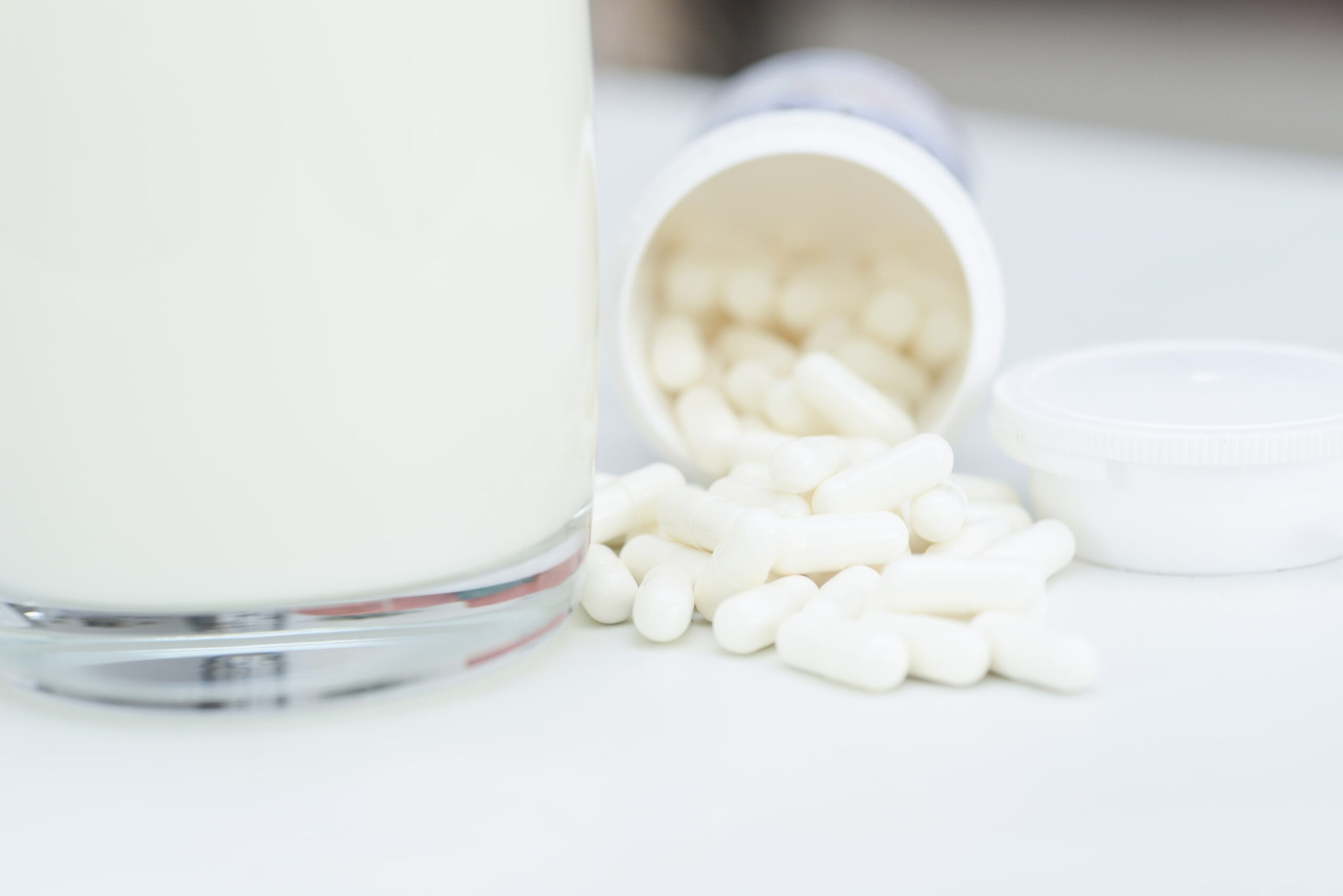
Are Lactase Pills Right For You?
Lactose intolerance is a common digestive disorder. It happens when the body cannot fully digest lactose, a sugar in milk and other dairy products. This disorder leads to uncomfortable symptoms and the inability to ingest certain foods. One potential remedy for this condition is the use of lactase supplements. But do they really work, and are they right for you?
What is Lactose Intolerance?
Lactose intolerance is a common digestive disorder where the body is unable to fully digest lactose, a sugar present in milk and dairy products. An article on the Cleveland Clinic website says that about 65% of people worldwide cannot digest lactose after infancy.
Symptoms of Lactose Intolerance
Those impacted by lactose intolerance may experience symptoms such as abdominal pain or bloating, diarrhea, gas, and nausea. These symptoms usually start within a few hours. They occur after eating or drinking lactose. Symptoms vary from person to person and depend on the amount of lactose eaten.
Causes of Lactose Intolerance
Lactose intolerance occurs because there is too little lactase in the small intestines. Lactase is needed to digest lactose into simpler sugars, glucose, and galactose. These sugars can then be absorbed into the bloodstream.
Lactose intolerance frequently manifests in adulthood, and its prevalence increases with age. Certain ethnic and racial groups are more likely to have this condition. These groups include African Americans, Hispanic Americans, Native Americans, and Asian Americans.
Preterm infants tend to lack lactase. Levels of the enzyme usually rise in the final trimester of pregnancy.
The cause of lactose intolerance is best understood by explaining how a person gets lactase deficiency. Primary lactase insufficiency emerges slowly. It typically starts after age two when the body reduces its lactase production. Most kids with low lactase levels do not show signs of lactose intolerance until they are older.
Secondary lactase insufficiency arises from damage to the small intestine that can be caused by intense diarrheal diseases, celiac disease, Crohn’s disease, or the effects of chemotherapy. While this form of lactase insufficiency can develop at any stage of life, it tends to be more prevalent during infancy.
In people with lactose intolerance, bacteria in the gut ferment undigested lactose. This produces gases and the symptoms of this condition.

Lactase Supplements: A Potential Solution for Lactose Intolerance
If you have trouble digesting lactose, lactase supplements like Lactaid could offer relief. These supplements contain the lactase enzyme. It helps digest lactose and may reduce lactose intolerance symptoms.
What are Lactase Supplements?
Lactase supplements are over-the-counter products containing the enzyme lactase. This enzyme helps break down lactose into simpler sugars, allowing the body to absorb it more easily. Popular brands of lactase supplements include Lactaid and Lactase Fast Act.
How do Lactase Supplements Work?
You can take lactase supplements before or with a lactose-containing meal or drink. These supplements give the body extra lactase enzymes, which break down lactose. This makes it easier for the body to digest and absorb lactose-containing foods, and it may reduce the symptoms of lactose intolerance.
Efficacy of Lactase Supplements: Do They Work?
Researchers and experts are still studying how well lactase supplements mitigate the symptoms of lactose intolerance. The topic is also the subject of debate. Studies have had mixed results about their effectiveness, as some showed benefits, but others did not.
Supporting Evidence for Lactase Supplements
Some small studies have shown that lactase supplements can reduce lactose and ease symptoms. For instance, a trial published in 2010 in the “European Review for Medical and Pharmacological Sciences” found that lactase supplements helped. They improved lactose breath test results and gut symptoms in lactose-intolerant patients.
Contradictory Evidence for Lactase Supplements
However, a study in BioMed Research International found that lactase supplementation had varied outcomes. Only about 22% of the 96 people who took a lactase supplement had complete normalization on the lactose breath test, and about 18% had no response. These conflicting results suggest that other factors, beyond lactase levels, may also contribute to a person’s ability to digest lactose.
Safety Considerations for Lactase Supplements
While lactase supplements are generally considered safe, some people should exercise caution. For instance, people with diabetes should check their blood sugar after taking lactase supplements. The enzyme helps break lactose into simple sugars. Due to a lack of safety information, lactase supplements are not typically recommended for women who are pregnant or breastfeeding.
Possible Side Effects of Lactase Supplements
Most people do not experience side effects from lactase supplements, but they may not always work to prevent symptoms of lactose intolerance. If they do not work for a particular individual, that person may still experience gastrointestinal symptoms like bloating.
Long-term Use of Lactase Supplements
Limited research exists on the long-term health effects of lactase supplements, which are generally considered safe. If you plan on taking lactase supplements regularly, it is advisable to talk with your doctor about the potential risks and benefits of long-term use.

Alternatives to Lactase Supplements
Lactase supplements can help manage lactose intolerance but are not the only option. Alternatives include eating less dairy or trying lactose-reduced or lactose-free products. There are also non-dairy sources of calcium and vitamin D. In some cases, you can build up your tolerance for dairy by slowly adding it to your diet.
Lactose-free and Lactose-reduced Products
A variety of lactose-free and lactose-reduced products are available in most grocery stores. These products are specially processed to remove or break down the lactose, thus making them easier for lactose-intolerant individuals to digest.
Dairy Alternatives
For those who cannot tolerate any amount of lactose, dairy alternatives may be a suitable option. These include soy, almond, rice, and coconut milk. Many of these alternatives are fortified with essential nutrients like calcium and vitamin D to help meet nutritional needs.
Contact Us for Treatment
While lactase pills can offer relief for many and provide a path back to enjoying dairy with fewer digestive disruptions, they are not a one-size-fits-all solution. Everyone’s digestive system is unique. If you find yourself navigating the complexities of lactose intolerance and are considering lactase pills as a solution, we highly recommend consulting with us. The specialists at Gastroenterology of Greater Orlando can provide personalized advice and treatments tailored to your specific condition and dietary needs. Don’t let lactose intolerance diminish your quality of life. Contact Gastroenterology of Greater Orlando to start making informed decisions about your health and well-being.